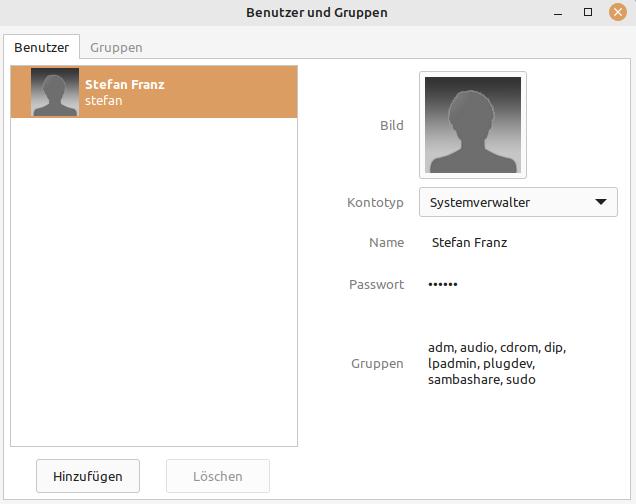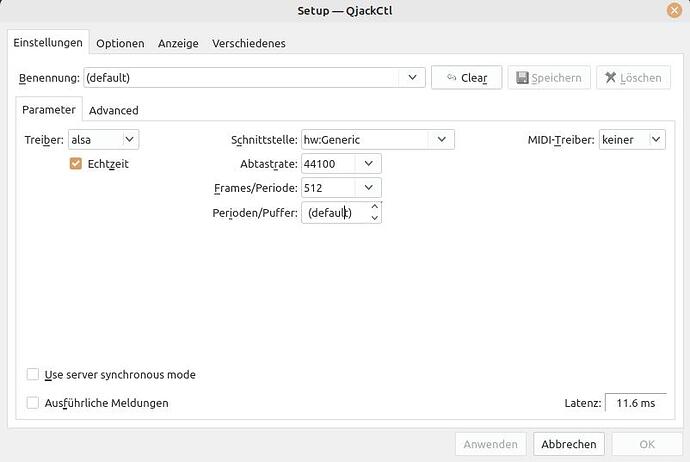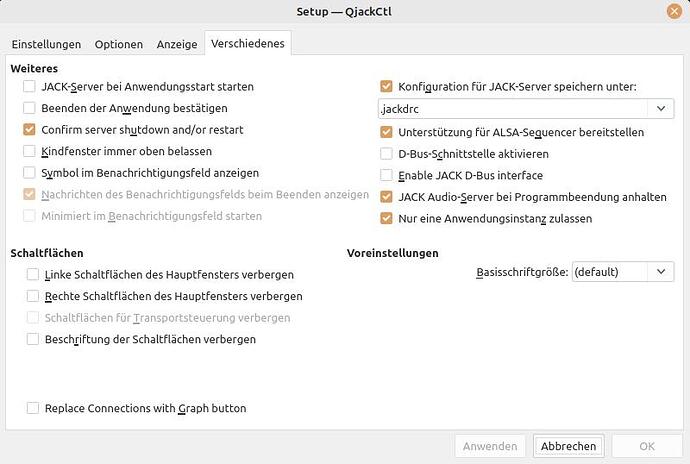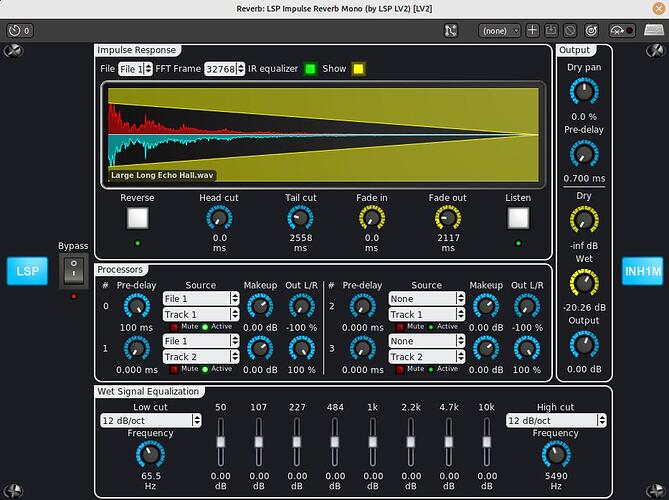When installing Ardour on Linux Mint 21 I need some time to eliminate a few issues. Therefore, here is my tutorial for you on how to quickly install Ardour on Mint 21 Cinnamon.
Why Mint 21 and not e.g. AV LInux or Ubuntu Studio? I tested all 3 distros and here you find my result why Linux Mint 21 the best for me - you find here the settings to do:
After download the .run file here is the guide to install Ardour
https://help.ubuntu.com/community/InstallingRunPackage
After the Installtion there came a warning:
"!!! WARNING !!! - Your system seems to use frequency scaling"
That means, that Linux Mint throttles the cpu.
Solution: Download and install the CPUPower_Gui from the Application Manager and set it e.g. from “Powersave” to “Performance”. If not, you could be performance issues with Ardour.
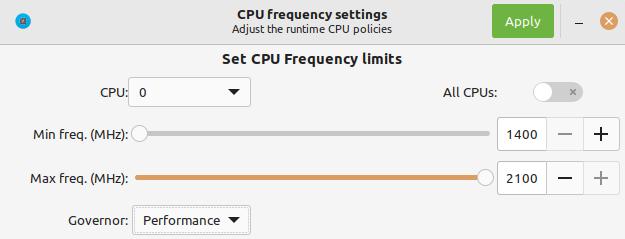
In my case it was enough to switch to Performance. You can adjust the min frequence up if it’s not enough on your system. Try it out. On every new boot you have to adjust it.
Permanent setting to “Performance”:
To set it permanently to “Performance” for example this is the way:
Change the following file (open parent directory as system manager e.g. in Nemo Filemanager (standard on Linux Mint 21 Cinnamon) and open this file with a texteditor: /etc/default/grub
This is a text file, and about line 10 says “GRUB_CMDLINE_LINUX=”
In the quotes it says either nothing or something. There you insert the following: GRUB_CMDLINE_LINUX=“threadirqs cpufreq.default_governor=performance”
Now enter the following in the terminal: sudo update-grub
(to update your grub settings)
After a reboot your Governor/ CPU is automatically set to performance.
Can be checked with the cpupower gui.
To get back to Powersave mode (if you want) you can adjust the textfile with
GRUB_CMDLINE_LINUX=“threadirqs cpufreq.default_governor=powersave”
Using Jack - only if you need - for Ardour you don’t need it normal
Note: Only recommend, if you want mix audio - Ardour and another Sound player e.g Audacious. But Midi don’t work with Ardour on my system if you use Jack. So probably you don’t need it!
If you work only with Audio, it works and maybe it helps you.
First, i use Ardour under ALSA and all is fine. Its runnung without Jack, simply select ALSA and your interface.
BTW: Steinberg UR824 don’t work with Linux. I bought Behringer U-Phoria - that works fine (all models, buy how many ins and outs you need).
If you want to use some Apps who use Jack, you need to setup Jack. Or if you want use Ardour and e.g. playing music over Audacious, you need also Jack.
Jack is virtual plugin tool to connect your sound-in to sound-out. You find many articles over that in the internet, but i don’t find a proper manual with the actual gui - here is it:
First, got to user and groups and put yourself in the audio group by clicking right in the group field
Download QJackctl from your application manager of Linux Mint

Setup: Interface (soundcard), sample rate and frames what you want to use in Ardour.
under “Miscellaneous” → take out the Replace Connections with Graph button
Start Jack (with the Play Button)

Click now to Connect / Verbindungen (bottom left button)
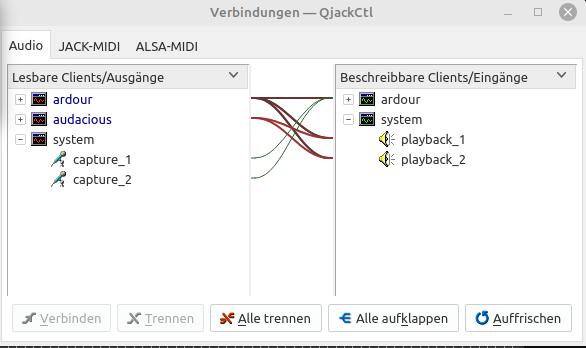
After that you can start Ardour and switch in the audio settings Jack. If before ALSA was in, you can start Ardour bevor starting Jack and stop the audio connections. In my case i hat Audacious running.
Note: Firefox (playing Youtube videos) can not displayed over Jack.
Useful Plugins
For Sounds you have a build in ACE Fluid Synth - a SF2 Soundfont player. And a general midi synth. And many other plugins Ardour comes with.
I searched for additional Stuff and here are my results after long searching and testing:
First: Here is the place to install plugins:
Additional for VST3s:
Linux VST3 Plugins i installed here (according to the vst path /usr/lib/lxvst i made this directory): usr/lib/lxvst3
Some Plugins use this path (Plugins you download the .dep file for installing over doublecklick): /usr/lib/vst3
Usefull (for me) Effekts:
Ubuntustudio Audio plugins (the plugins from Ubuntu Studio Distribution)
https://wiki.ubuntuusers.de/Ardour/
install: sudo apt-get install ubuntustudio-audio-plugins
Note: There are a huge collection of Plugins - a few are not running, is not the problem, because you have so many, and the best are running
My favorite now for reverb (it comes with the Ubuntu Studio Audio Plugins above):
It works with reverb impulse responses. Here i have a huge collection of 2300 different files to download it.
Plugins, i’ve found in the internet
LoudMax – Maximizer
Dragonfly Reverbs
Only VST2 Plugins work
Instruments:
Speedrum Lite - Drum Sampler (i bought and use his big brother Speedrum - with transient shaper perfect for soft or hard drum sounds - decide how your drums should “kick”)
https://www.apisoniclabs.com/freeware.html#speedrum-lite
VST2 works only proper!.
Path: /usr/lib/lxvst/Speedrum_lite/speedrum_lite.so
(VST3 makes not multi outs)
Redux - Sampler (fantastic sampler - the best i found in 1 week research)
Path: /usr/lib/lxvst/renoise_redux_x86_64/renoise_redux.res
Tal-Sampler (also good, needs a bit more performance as the Redux, but not the problem - i desided to use the Redux)
I hope i helped many user here a bit to have fast a great studio so that the users who use Linux for music productions become more and more.
Greetings, Party-DJ Stefan (Germany)
